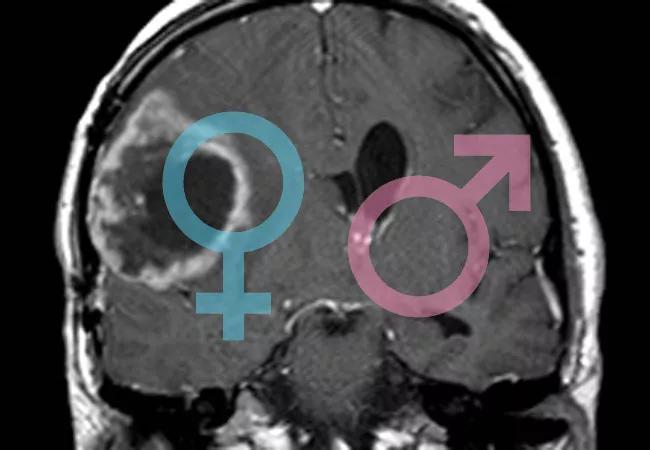Funding expands work by consortium led by Cleveland Clinic Lerner Research Institute and CWRU

A team led by researchers from Case Western Reserve University School of Medicine and Cleveland Clinic Lerner Research Institute has secured $10.4 million over five years from the National Cancer Institute to explore differences in glioblastoma at the molecular level between males and females.
Advertisement
Cleveland Clinic is a non-profit academic medical center. Advertising on our site helps support our mission. We do not endorse non-Cleveland Clinic products or services. Policy
The researchers will investigate the genetics, epigenetics and cell biology of glioblastoma — the most common and deadliest brain tumor in adults — to better understand physiologic processes in pursuit of more-personalized therapies. The team is led by co-principal investigators Justin Lathia, PhD, of Cleveland Clinic Lerner Research Institute, and Jill Barnholtz-Sloan, PhD, of Case Western Reserve University School of Medicine.
Previously published research by this team has shown significant differences between the sexes in glioblastoma incidence, survival and some key molecular pathways. They found that glioblastoma incidence is 60% higher in males than in females and that females have a significant survival advantage, with a median improved survival of up to 10 months relative to males. However, while these sex differences are understood, they are typically not yet considered when treating glioblastoma.
“We have the molecular profiling technology and the computing and analytical strength to lead in this effort to better understand the role of sex differences in cancer, particularly for glioblastoma,” says Dr. Barnholtz-Sloan, the Sally S. Morley Designated Professor in Brain Tumor Research and Associate Director of Data Sciences at the Case Comprehensive Cancer Center. “This next phase of research relies on vast, varied and complex datasets — in animals and humans — and promises to be a game changer in how we understand the role of sex in tumor formation and disease outcomes. This comprehensive approach has applications to all forms of cancer, as well as other diseases.”
Advertisement
“Sex differences are inherent drivers of glioblastoma incidence and survival, and we are taking a multidimensional approach to uncover a better understanding of this differentiation,” adds Dr. Lathia, Co-Director of Lerner Research Institute’s Center of Excellence in Brain Tumor Research and Therapeutic Development and Co-Leader of the Molecular Oncology Program at the Case Comprehensive Cancer Center. “We are incorporating data from tumor cells and their surrounding micro-environment, genetic programs responsible for tumor growth, and underlying epigenetic differences that may be responsible for sex differences. We aim to gain a better understanding of how these variables interrelate to better understand disease mechanism, which in turn defines better diagnostics and more-personalized therapies for patients.”
The multidisciplinary research initiative involves established investigators with complementary expertise and a strong collaborative history. Along with Drs. Lathia and Barnholtz-Sloan, participating institutions and their principal investigators include:
The team will undertake three related and interdependent research projects to delve into the basic biology and cellular mechanisms that drive sex differences in glioblastoma formation and progression. Laboratory findings from animal models will be queried against data from human clinical samples across multiple institutions. The vast data generated will require robust data management and sophisticated analysis for a comprehensive view of sex differences across the varied but related inquiries.
Advertisement
The findings are expected to inform future clinical research design, including the search for targets for new therapeutics and/or the differential application of existing therapeutics depending on a patient’s sex.
The grant was made by the National Cancer Institute (1P01CA245705).
Advertisement
Advertisement

First full characterization of kidney microbiome unlocks potential to prevent kidney stones

Researchers identify potential path to retaining chemo sensitivity

Large-scale joint study links elevated TMAO blood levels and chronic kidney disease risk over time

Investigators are developing a deep learning model to predict health outcomes in ICUs.

Preclinical work promises large-scale data with minimal bias to inform development of clinical tests

Cleveland Clinic researchers pursue answers on basic science and clinical fronts

Study suggests sex-specific pathways show potential for sex-specific therapeutic approaches

Cleveland Clinic launches Quantum Innovation Catalyzer Program to help start-up companies access advanced research technology